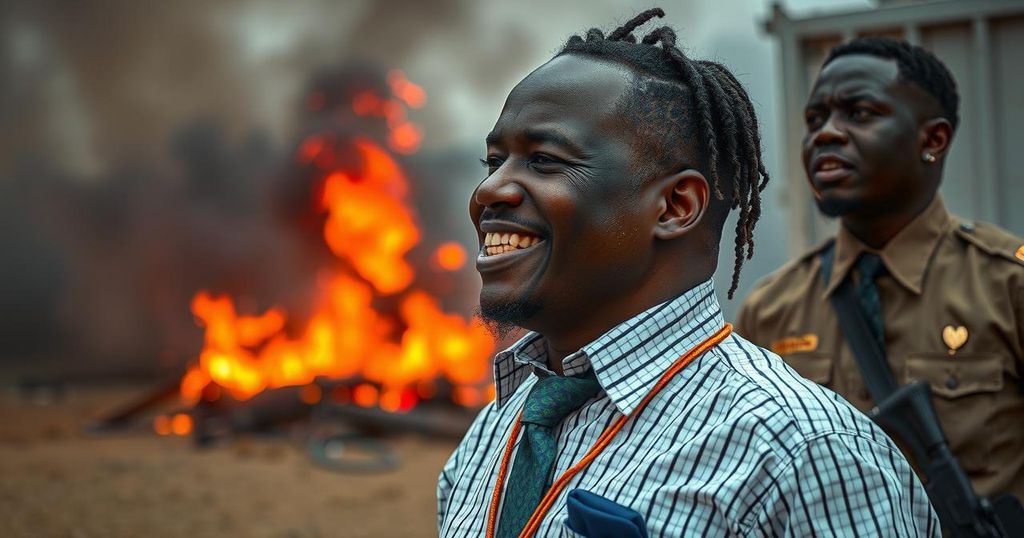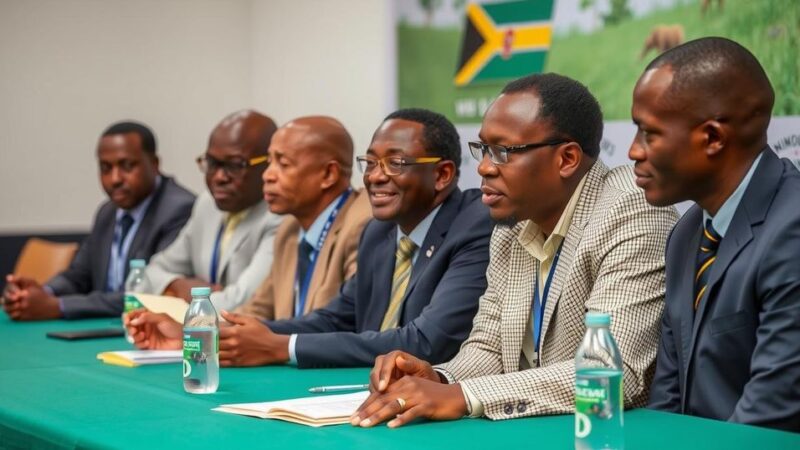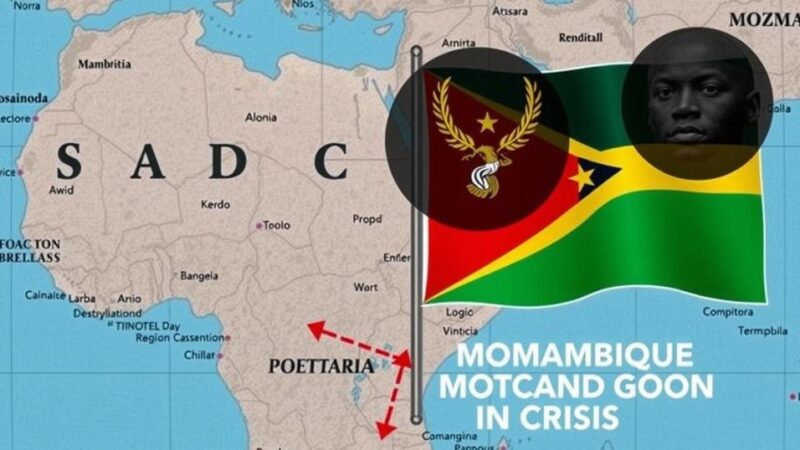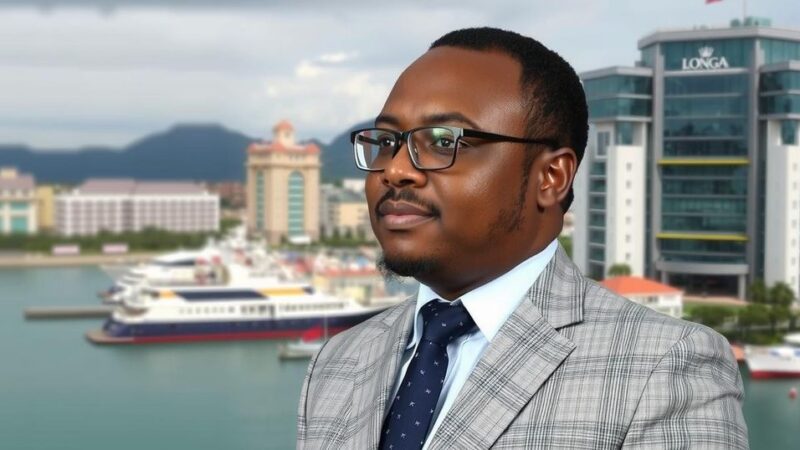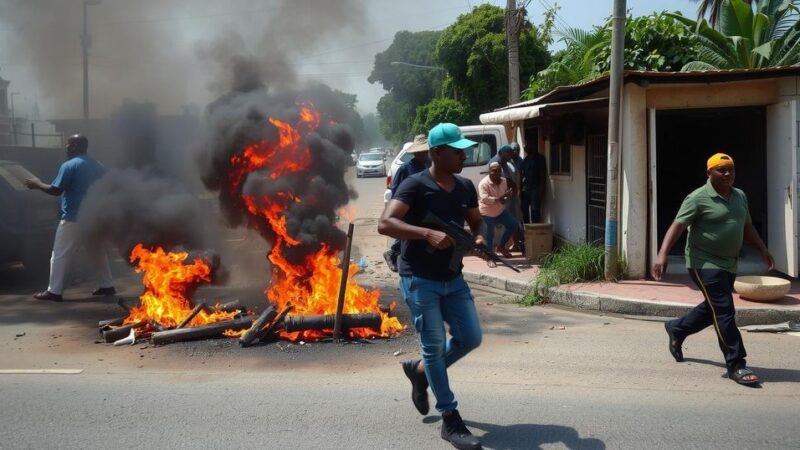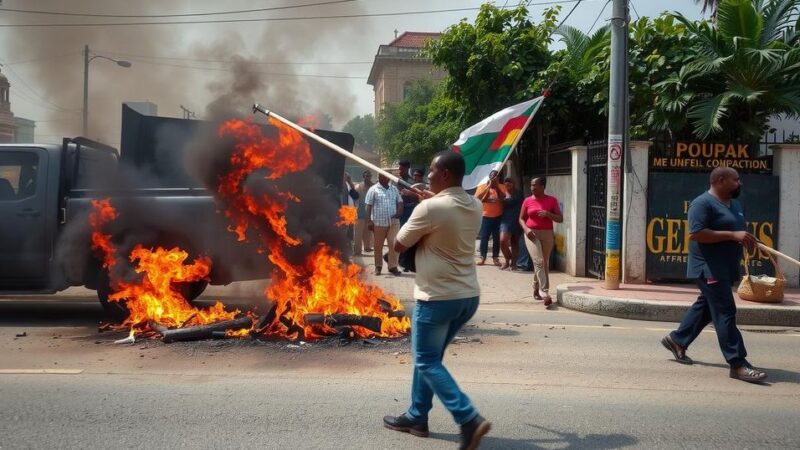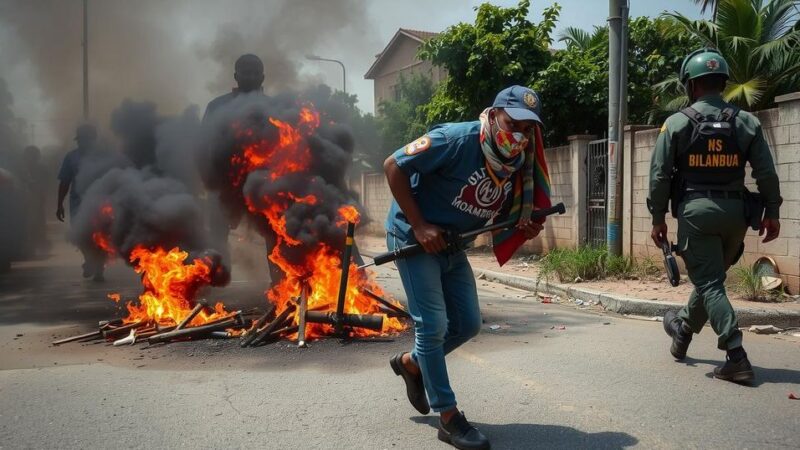In Mozambique, over two dozen people were killed in violence following controversial election results confirming Frelimo’s victory. Protests erupted in the capital, Maputo, and beyond, leading to significant unrest, property damage, and injuries. The opposition continues to challenge the legitimacy of the elections, with calls for a people’s constitutional court to confirm their claims of electoral fraud.
In Mozambique, at least 21 fatalities, including two police officers, have been reported following violent protests that erupted after the ruling Frelimo party was confirmed as the winner of the recent elections. The country’s highest court, which upheld the controversial victory of Frelimo’s candidate, Daniel Chapo, ignited further unrest amidst allegations of electoral fraud by opposition leader Venâncio Mondlane. The violence has led to significant property damage and disruption throughout major cities, particularly in the capital, Maputo.
The confirmed violence has resulted in at least 236 reported acts, leaving over 25 individuals injured, including 13 police officers, as affirmed by Interior Minister Pascoal Ronda. Armed groups employed bladed weapons and firearms to initiate assaults on police stations and public infrastructure. More than 70 suspects have been apprehended within this tumultuous period, highlighting the escalation of post-election violence across Mozambique.
The typically vibrant capital of Maputo experienced altercations between demonstrators and law enforcement. Skirmishes saw police employing armored vehicles to disperse crowds, while makeshift barricades and burning debris obstructed thoroughfares. This unrest occurred as Mondlane claimed the election results were rigged and called for continued protests. Local businesses faced widespread destruction, leaving many shops and services shuttered during a traditionally busy time of year.
The conflict has expanded beyond Maputo to northern regions such as Cabo Delgado and Nampula, prompting increased violence where opposition sentiment runs strong. Reports indicate that over 100 individuals have perished in the post-electoral unrest. Mondlane has since demanded “electoral truth” and has stated, “We must continue the fight, remain united and strong.”
Despite facing allegations of electoral irregularities, Frelimo continues to assert its majority control in the National Assembly with 171 out of 250 seats. In a tone of conciliation, Chapo has promised to engage with all parties, including his adversaries, in his forthcoming administration. The ongoing political turmoil highlights the significant societal divisions and unrest witnessed following the elections.
As of now, many citizens have voiced their anguish over their electoral grievances, with Mondlane proposing the establishment of a “People’s Constitutional Court” to legitimize his claims to leadership. The growing apprehension in Mozambique’s political landscape raises serious concerns about the future of the nation’s governance and civil stability.
Recent elections in Mozambique have led to severe political instability and violence, primarily due to disputes over the electoral results. The long-standing ruling party, Frelimo, has faced significant accusations of electoral fraud and malpractice. This turmoil highlights ongoing tensions between Frelimo and the opposition, particularly with figures like Venâncio Mondlane, who challenge the legitimacy of the government’s actions. The unrest reflects broader societal frustrations and the potential for continued violence as citizens demand accountability and justice regarding their electoral process.
The unrest in Mozambique illustrates the escalating consequences of contested electoral results, with significant loss of life and property resulting from post-election violence. As the conflict continues, the democratic principles and stability of the nation are at risk, necessitating urgent dialogue and reconciliation efforts between the ruling party and opposition factions. With calls for electoral reform and public engagement growing louder, the future of Mozambique’s political landscape hangs in a precarious balance.
Original Source: www.lemonde.fr

